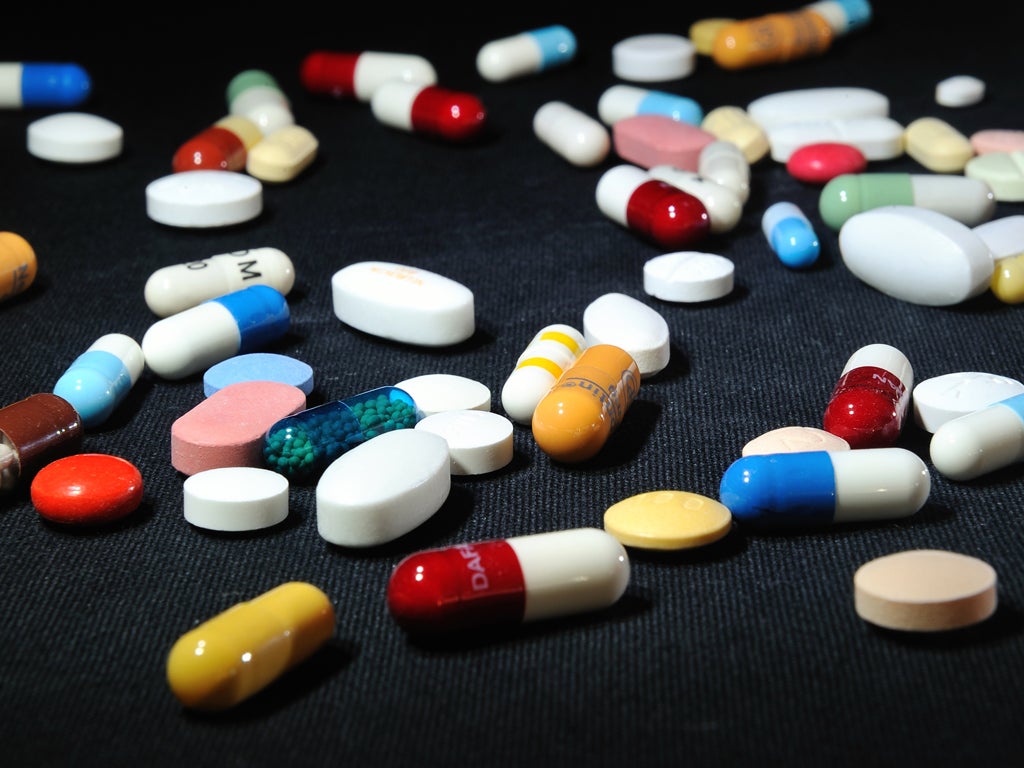‘Hooked on happy pills’? How the media demonises mental health medication
Language is very telling of attitudes - would it be the same talking about medication for high blood pressure?

Working in a busy press office for a major mental health charity Rethink Mental Illness, I often get calls from journalists asking if I can put them in touch with someone to interview about their experiences of mental illness.
Nothing unusual about that. What I have noticed about these conversations however, is the familiar phrases that so often tend to pop up. Do we have anyone who has been ‘parked’ on medication for over 10 years? A mum who is ‘hooked’ on Prozac? Take a look at almost any media coverage about antidepressants or antipsychotics and you’ll often find this kind of language creeping in.
Every time new figures come out showing increases in prescriptions for these types of drugs, we get a flurry of calls from the media asking if we’re ‘concerned’ about the ‘shocking rise’ in the ‘antidepressant epidemic’.
What I find worrying, is the automatic assumption that a rise in prescriptions, or someone taking medication for a number of years, is necessarily A Bad Thing.
Medication for mental illness can save lives and give people the stability they need to survive. That may be for a few months, it may be years. While no one wants to be on any kind of medication unnecessarily, for some people, it’s the best option.
The language used in the media around this is very telling. There is a clear dividing line between those who simply ‘take’ medication, such as people with diabetes, and those who are ‘hooked’ on it - people with mental health problems.
Antidepressants in particular are often written about in the context of someone trying desperately to ‘give them up’ as if they’re some kind of bad habit.
The subtext to all this is that to take mental health medication is unnecessary, a sign of weakness and failure. I can’t help wondering if this stems from the deep seated suspicion, which is rarely voiced, but still surprisingly pervasive, that the vast majority of people with mental health problems aren’t really ill, they’re just a bit sad or being a bit difficult. If as a society, we can’t truly accept that people with depression are ill, then how can we accept that it’s ok for them to take medication for it?
These deep-seated beliefs are not only stigmatising, they have a very real impact on people living with mental illness every day. It’s bad enough to be diagnosed with a mental illness and accept that you may need to take medication, but to be made to feel guilty for doing so, is especially hard.
When speaking to members of my charity, I often detect a sense of guilt when people talk about medication, as if it is an admission of weakness. I’ve seen it in my personal life too. One of my best friends was prescribed antidepressants for a severe mental illness last year. She found it incredibly helpful, but as soon as she stabilized, her immediate concern was to get off it as soon as possible. While of course it’s a good idea to try and come off any kind of medication if it’s not necessary, talking to her about it, it was clear that the main driving force wasn’t her health, but the sense of shame and inadequacy she felt for needing it.
Would she feel this way if she was taking medication for high blood pressure? I very much doubt it.
Rethink Mental Illness, is neither ‘for’ or ‘against’ medication, what we’re interested in is people having a choice over their own treatment and finding what works for them. The real problem is that in the vast majority of cases, this isn’t happening. Far too often, due to squeezed NHS budgets, people are only offered drugs when they could benefit from talking therapies either instead of, or alongside it.
My charity is the first to point out what a scandal it is that antipsychotic medications haven’t vastly improved since the 1950s. We have long campaigned for improvements in drugs which come with a range of horrific side-effects and double your chances of dying from heart disease. Despite all this, for many people, taking this medication is still their preferred option, which says a lot about how devastating psychosis can be.
Many people manage their mental heath problems very successfully without any medication; others may need to take it for the rest of their lives, there is no right or wrong. What is wrong however, is that anyone should be made to feel inadequate for falling into the latter group.
The media plays such a powerful role in shaping our understanding of mental illness, it’s vital journalists start thinking twice before lazily throwing around words like ‘hooked’ when they write about this sensitive subject. I look forward to the day I can open a newspaper and see decisions over medication presented as a straightforward health issue, rather than a moral struggle to resist the ‘happy pills’.
Join our commenting forum
Join thought-provoking conversations, follow other Independent readers and see their replies
Comments
Bookmark popover
Removed from bookmarks